armed forces
Judge dismisses Canadian military personnel’s lawsuit against COVID shot mandate

From LifeSiteNews
Associate Judge Catherine Coughlan rejected a lawsuit from more than 300 past and current members of the Canadian military who lost their jobs or were put on leave for not taking the experimental, dangerous COVID shots.
A Canadian federal judge has thrown out a lawsuit filed on behalf of some 330 past and current members of the nation’s military who lost their jobs or were placed on leave for refusing the experimental COVID shots, because she alleged that their lawsuit lacked “evidence” that the jabs were harmful.
The Canadian Armed Forces (CAF) members had sought some $1.3 million in damages from the government for having their charter rights violated due to the military’s 2021 COVID mandates, according to their lawsuit.
In a November 13 ruling, Edmonton-based Associate Judge Catherine Coughlan ruled in favor of the Trudeau government, and thus military’s COVID jab mandate, to strike down the case. Coughlan remarked that the plaintiffs’ case lacked “material facts” along with “evidence” and was filled with “vexatious language.”
READ: Canadian father files $35 million lawsuit against Pfizer over son’s jab-related death
“The only indications of bad faith are found when the pleadings baldly assert that, among other claims, Canada failed to carry out safety and efficacy testing for the vaccines, and that the Directives were premature and ‘promoted the fraudulent use of the biologics’,” she wrote, overlooking reports of thousands of injuries due to the shots in Canada alone.
As a result of the lawsuit being tossed, all plaintiffs are now on the hook to pay some $5,040 out of pocket in legal costs.
As reported by LifeSiteNews in June, documents obtained by LifeSiteNews show that the number of jab injuries in the CAF rose over 800 percent in 2021, with the most being credited to Moderna’s experimental COVID shot.
The CAF members’ lawsuit was filed in June of 2023 and overall sought some $1 million in damages, along with an extra $350,000 in general damages. The lawsuit also had a condition that there be a declaration made that mandating the COVID shots for military members was a violation of their charter rights.
READ: Israeli boy featured in COVID vaccine campaign dies of heart attack at age 8
LifeSiteNews reported in July that a member of Canada’s military who was injured after taking the experimental mRNA COVID jabs has been denied compensation from the nation’s Veterans Affairs department.
Under the CAF’s mandate, hundreds of military members were fired, or one could say, purged for not getting the COVID shots. This is in addition to the thousands of public servants fired for not agreeing to take the COVID shots.
The CAF eventually ended its COVID mandate in October 2022, which was months after the federal mandate was lifted, but members are still “strongly encouraged” to take the experimental shot.
The federal government under Prime Minister Justin Trudeau announced that its federal COVID shot workplace mandate would be dropped in June 2022, as would the mandate requiring domestic travelers have the shot to board planes and trains.
In November of 2023, a CAF member who spoke to LifeSiteNews under the condition of anonymity observed that the military considers members who refuse the COVID jab “a piece of garbage.”
READ: COVID shots have 200-times higher risk of brain clots than other jabs: new report
In March, LifeSiteNews reported on large personnel losses causing the CAF to consider dropping its remaining requirements altogether.
Although Canada has a Vaccine Injury Support Program (VISP) program, active members of the CAF, as well as veterans, are not eligible for the civilian program. According to Christensen, this leaves many COVID jab-injured CAF members and veterans with no recourse other than Veterans Affairs Canada.
COVID shot mandates, which came from provincial governments with the support of Trudeau’s federal government, split Canadian society. The mRNA shots themselves have been linked to a multitude of negative and often severe side effects, such as heart diseases, stroke, and death, including in children.
The shots also have connections to cell lines derived from aborted babies. As a result, many Catholics and other Christians refused to take them.
armed forces
Canadian veteran says she knows at least 20 service members who were offered euthanasia
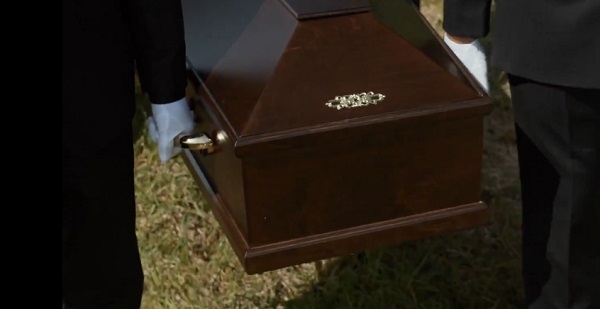
From LifeSiteNews
Canadian Armed Forces veteran Kelsi Sheren told members of the House of Commons that he has proof of veterans being offered assisted suicide.
Canada’s liberal euthanasia laws have made the practice so commonplace that a Canadian Armed Forces (CAF) veteran has said she knows and has “proof” that no less than 20 of her colleagues were offered unsolicited state-sponsored euthanasia.
Kelsi Sheren, who is a CAF veteran, recently told MPs in the House of Commons veterans affairs committee that “over 20 veterans have confirmed being offered MAID.”
“I have the proof, and I have proof of more,” Sheren told the committee during an October 28 meeting.
Conservative MP Blake Richards asked Sheren if she was willing to provide them with evidence to affirm her allegations.
Sheren noted how the 20 veterans have given written testimonies, or actual audio recordings, of when they were offered what in Canada is known as Medical Assistance in Dying (MAiD).
“We also have other individuals who are too afraid to come forward because Veterans Affairs has threatened their benefits,” she told MPs, adding that some other veterans were even offered non-disclosure agreements along with “payouts if they were to take it.”
Veterans Affairs Canada (VAC) has told the media its “employees have no role or mandate to recommend or raise (MAid). ”
As reported by LifeSiteNews, this is not the first time reports of CAF veterans saying they were offered MAiD.
Indeed, as reported by LifeSiteNews, it was revealed last year that the federal department in charge of helping Canadian veterans appears to have purposefully prevented the existence of a paper after scandalous reports surfaced alleging that caseworkers had recommended euthanasia to suffering service members.
LifeSiteNews recently published a report noting how a Canadian combat veteran and artillery gunner revealed, while speaking on a podcast with Dr. Jordan Peterson, that the drugs used in MAiD essentially waterboard a person to death. Assisted suicide was legalized by the Liberal government of former Prime Minister Justin Trudeau in 2016.
A new EPC report has revealed that Canada has euthanized 90,000 people since 2016.
As reported by LifeSiteNews last week, a Conservative MP’s private member’s bill that, if passed, would ban euthanasia for people with mental illness received the full support of the Euthanasia Prevention Coalition (EPC).
armed forces
Why we keep getting Remembrance Day wrong
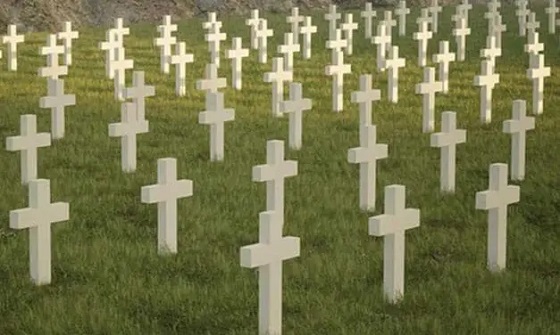
This article supplied by Troy Media.
 By Pat Murphy
By Pat Murphy
Remembrance Day once honoured soldiers for their courage and conviction, but the values they fought for have long since been rejected
With the untimely death of Tim Cook on Oct. 25, Canada lost a valued historian. Military history was Cook’s oeuvre, and the First World War was a particular specialty. His ability to marry academic rigour with accessible storytelling made him a relatively rare bird.
Naturally, Cook wrote about battles, military commanders and political leaders. But he was also fascinated with ordinary soldiers, scouring the archives for personal letters from the front and other material to develop an understanding of what
motivated the soldiers and how they managed the day-to-day horrors of prolonged trench warfare in an environment characterized by cold, mud, lice and rats, not to mention the ever-present spectre of violent death.
Camaraderie was critical. To quote from an interview with Cook: “one of the ways they cope is to create their own tribe, their own group that is insulated from everyone else.”
All of which brings us to Remembrance Day.
Although formally recognized as “remembrance for the men and women who have served, and continue to serve our country during times of war, conflict and peace,” both the origins and iconography of Remembrance Day relate to the First World War. There’s the two-minute silence at the 11th hour of the 11th day of the 11th month to observe the formal end of hostilities in 1918; the playing of the Last Post; and, of course, the ubiquitous red poppies.
The conflict wasn’t post Confederation Canada’s first military endeavour, but its scale dwarfed anything that came before it, and only the subsequent Second World War was a comparable event. Some 620,000 Canadians served between 1914 and 1918 and approximately 60,000 were killed. To get a sense of scale, adjust the fatalities for population growth and it would be comfortably north of 300,000 today.
In War: How Conflict Shaped Us, Margaret MacMillan notes the long history of cultures elevating personal characteristics associated with battlefield success, honouring bravery, endurance, toughness and the willingness to face death. It’s been pretty much a universal characteristic.
Nor should we think of war as only a male activity driven by patriarchal social structures. While it’s true that military hierarchies are traditionally male and the fighting in most wars has been done largely by men, women have always played
a key role in reinforcing the culture.
We, though, have become somewhat uncomfortable with the warrior ethos. Take, for instance, In Flanders Fields. Written in 1915 by Guelph’s John McCrae, the poem has acquired iconic status over the decades. It’s haunting and melancholy, sufficiently so to grab at your throat and send shivers down your spine. It’s also become inextricably intertwined with Remembrance Day.
There is, however, a small problem. While we now view the First World War as senseless carnage, In Flanders Fields has a very different perspective. As the third and final stanza makes unequivocally clear, the poem’s message isn’t about the war’s futility—it’s about the need to keep the faith and carry on to victory.
Much the same can be said about the music associated with the era. Those songs written in recent decades stress the sadness and futility of it all, but the actual popular music of the time was cheerful, patriotic and resolute.
Rather than seeing the soldiers as they were, we insist on recasting them as victims. Stripping them of personal agency, we ignore the fact that 80 per cent of them were volunteers, people who, for various reasons, chose to go to war.
So what motivated them?
Many were surely lured by the male affinity for adventure, compounded by patriotic fervour and enthusiastic loyalty to the concept of king and empire, however incomprehensible or disreputable the latter may now seem to us. There was also the buzz of an environment where the usual social norms regarding life, death and destruction had either vanished or become significantly attenuated. In her book, MacMillan documents how some found the whole experience “vastly exciting.”
Acknowledging this shouldn’t be confused with cheerleading. As I’ve previously written on more than one occasion, I think Britain’s reluctant decision to enter the First World War was a tragic error on many fronts. And if Britain had stood aside, Canada wouldn’t have been involved.
But respectfully remembering those who died shouldn’t be confused with turning them into something they were not. They weren’t hapless victims—they were people with beliefs and values of their own, even if we no longer look at the world in the same way they did.
Troy Media columnist Pat Murphy casts a history buff’s eye at the goings-on in our world. Never cynical – well, perhaps a little bit.
Troy Media empowers Canadian community news outlets by providing independent, insightful analysis and commentary. Our mission is to support local media in helping Canadians stay informed and engaged by delivering reliable content that strengthens community connections and deepens understanding across the country.
-

 COVID-199 hours ago
COVID-199 hours agoNew report warns Ottawa’s ‘nudge’ unit erodes democracy and public trust
-

 Great Reset2 days ago
Great Reset2 days agoEXCLUSIVE: A Provincial RCMP Veterans’ Association IS TARGETING VETERANS with Euthanasia
-
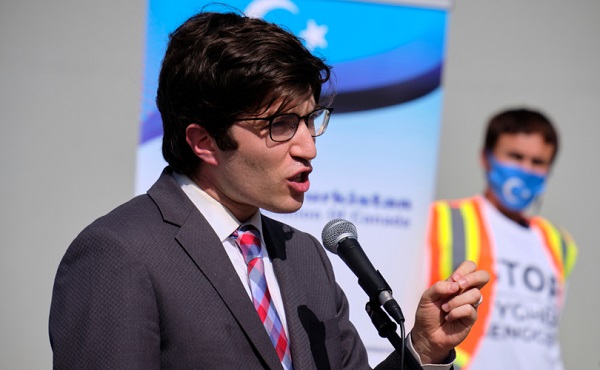
 Health2 days ago
Health2 days agoDisabled Canadians petition Parliament to reverse MAiD for non-terminal conditions
-

 Daily Caller2 days ago
Daily Caller2 days agoSpreading Sedition? Media Defends Democrats Calling On Soldiers And Officers To Defy Chain Of Command
-

 Crime1 day ago
Crime1 day agoHow Global Organized Crime Took Root In Canada
-
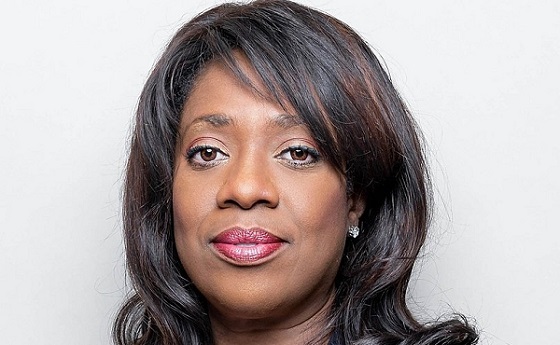
 Digital ID2 days ago
Digital ID2 days agoLeslyn Lewis urges fellow MPs to oppose Liberal push for mandatory digital IDs
-
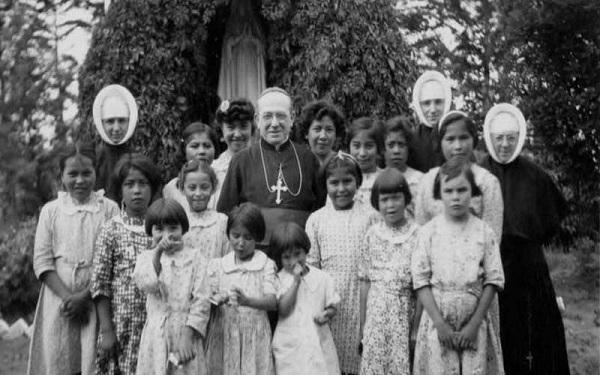
 Business2 days ago
Business2 days agoThe Payout Path For Indigenous Claims Is Now National Policy
-

 Energy1 day ago
Energy1 day agoExpanding Canadian energy production could help lower global emissions






